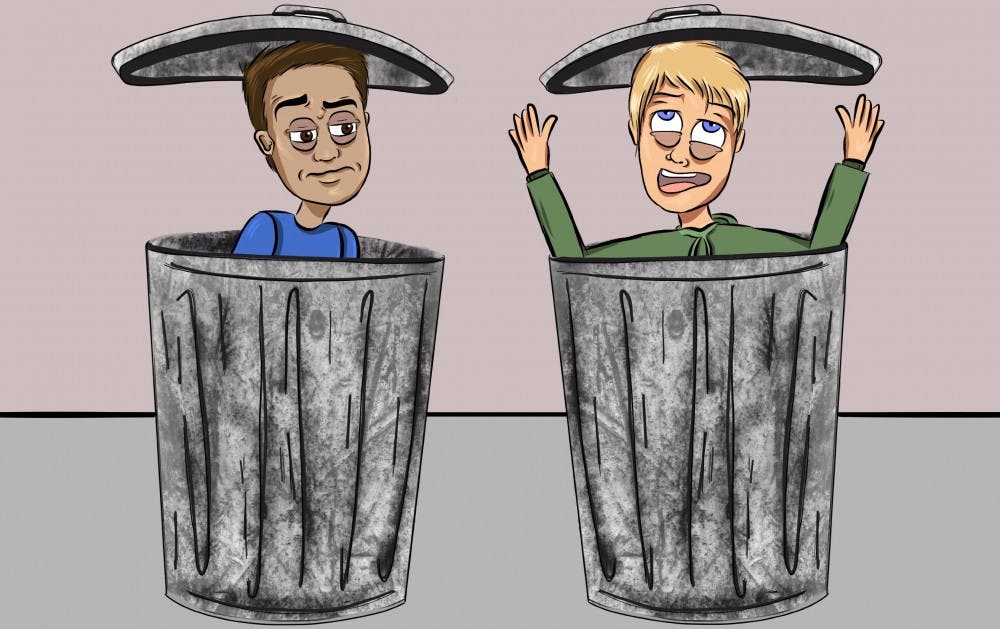Men are trash.
This three-word sentence has become a battle cry that almost feels productive for women who feel hurt and ignored after a lifetime of mistreatment and degradation, and one can almost hear the whines of “not all men” echoing from hurt men around the internet in response.
Facebook and Instagram have taken down posts and temporarily suspended users who use the phrase, deeming it hate speech or bullying.
However, "men are trash" is an appropriate wake up call to both the perpetrators of problematic behaviors, as well as the men who do nothing to stop it.
It is simple enough to call out men who regularly harass or demean women, but male bystanders to this behavior are just as responsible for these transgressions, both on campus and off.
Carina Chocano wrote in an article for the New York Times explaining the definition of complicit that “you can be complicit through action or inaction, speech or silence, association or omission.” She went on to explain that complicity stems from the desire to preserve ones reputation or not wanting to address the system that one lives in.
In recent years, especially since the #MeToo movement had gained momentum, a spotlight has been cast on the issues surrounding sexual harassment and gender inequality. For college students, it is important to learn now how to treat others as equals regardless of gender, race or sexual orientation.
Being an ally takes more than being passively against harassment and misogynistic behaviors. It takes an active push back against these things.
Elizabeth Brake, an associate professor of philosophy at ASU, said that being ignorant of one's ignorance is not an excuse, especially in the context of gender inequality.
"The concept of culpable ignorance is the idea that ignorance is blame-worthy. In this case, it is the idea that men have a responsibility to learn about their privilege and that being ignorant about it does not excuse them," Brake said.
Michael S. Kimmel wrote for The Harvard Business Review about the topic in a way that becomes more and more relevant in people’s lives.
“We are in a new moment. For many of us, particularly men, it is scary and uncomfortable. Men are feeling vulnerable and afraid of false accusations (or perhaps true ones),” he wrote.
In the fight for equality, men can often feel as though their societal privilege and power are being stripped from them when women gain certain privileges that only men possessed before. However, this does not mean that men will in turn be degraded, but rather that the playing field is being leveled for everyone.
“Men know that doing the right thing sometimes carries costs, and most of us are worried about jeopardizing what we have. So we betray the women in the room, abandon our ethics and slink away uncomfortably,” Kimmel wrote.
The spirit of saying "men are trash" is not meant to promote violence, but to highlight harassment, degradation and complicit behavior and the phrase expresses a frustration with a male-dominated society as a whole.
The mistreatment of women by men should not be tolerated, nor should complicity toward this behavior. Overall, it is up to men to take up the cause and hold each other accountable for their actions, whether that is at a party, in the classroom or elsewhere.
Reach the reporter at cfusillo@asu.edu or follow @katiefusillo on Twitter.
Editor’s note: The opinions presented in this column are the author’s and do not imply any endorsement from The State Press or its editors.
Want to join the conversation? Send an email to opiniondesk.statepress@gmail.com. Keep letters under 500 words and be sure to include your university affiliation. Anonymity will not be granted.
Like The State Press on Facebook and follow @statepress on Twitter.




